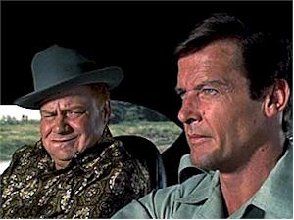Quote: billwill @ 6th July 2016, 1:21 PM BSTSigh.
By EUs own rules no member country can have special trading arrangements with non-EU countries; that's one of the reasons for voting Leave.
So the UK could not have a special arrangement with Italy.
Whate you are describing are essentially the World Trade Organization Rules, whereby if there is no special Trade Agreement beteeen two countries then each country has a list (possibly two lists) of tariffs which must be applied equally to all other countries. It is possible that there are two lists: Most Favoured Nations (MFN) and all the rest.
The whole EU is one country as far as the WTO is concerned and of course has such list(s) so the whole EU applies these MFN tariffs equally to places such as USA, India ans Australia. When the UK leaves the EU, in the absence of an FTA, the EU will have to apply that list to UK trade. Someone has calculated that the average EU tariff across the trade that the UK does with the 27 countries would amount to only about 1% which is MUCH cheaper than the subscription to be a member of the EU.
Naturally the UK's own WTO Tariff lists are way out of date so new ones will be needed. Since at present as a member of the EU) trade with places like USA, India, & Aus are subject to the tariffs on the EU list, it will avoid tariff changes for those countries if the initial UK tariff list is an identical copy of the EU list; the values can then be changed later as needed or new FTA may be agreed with other countries.
Thank you for the clarification.
It was late when I posted and I had drifted off and back a bit.
I accept "the UK could not have a special arrangement with Italy" etc which in turn means that we could not have had separate formal agreements with Australia etc in the past as an EU member but I stick with the earlier point that business could have had comprehensive informal discussions in readiness for a Brexit and it didn't do it.
But what I am getting from the Lawson/Owen and Lilley articles is that we would just have zero tariffs at least initially (not ancient WTO) while in the case of EU we would be subject to their tariffs. The contribution to the EU budget is equal to a 7% tariff so even if their tariff is 2.4% (rather than 1%) it would be less than that 7%. Yes?
Incidentally, it is the French who are the main stumbling block because of similar levels of exports and imports.
The way of ensuring that we have access to the Single Market for goods and financial services while also having border controls is to provide the French with advice before triggering Article 50. That is, while still an EU member we will offer a substantial sum of money to all UK citizens over 18 to move to the rest of the EU as long as they move in one specified month and travel by Euro train or boat to Calais. Then they can re-think their position. Yes?

